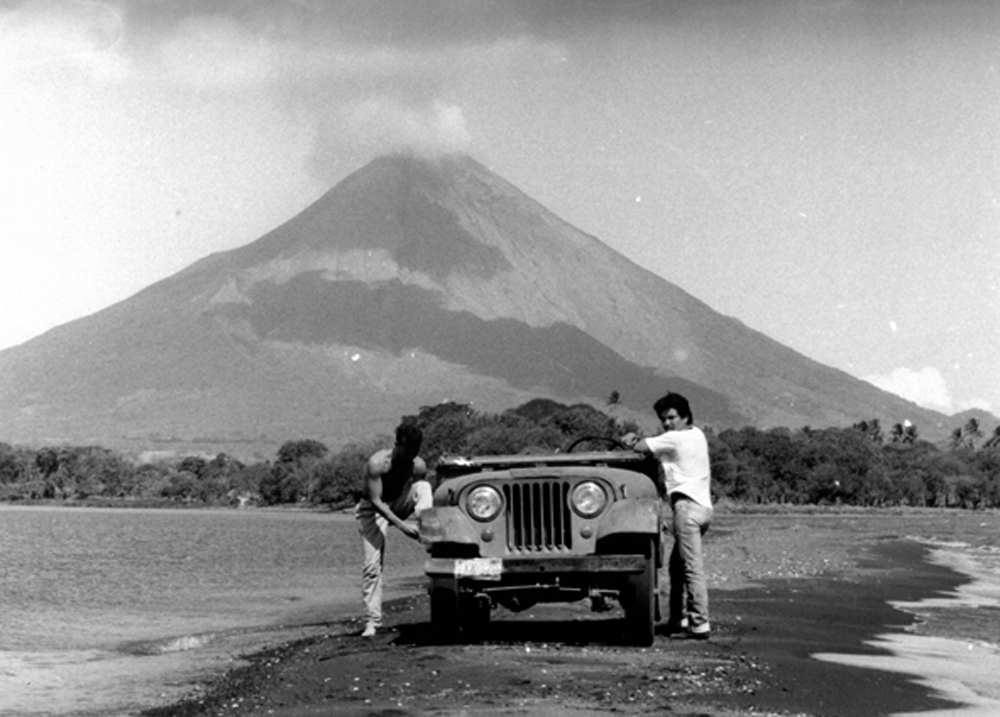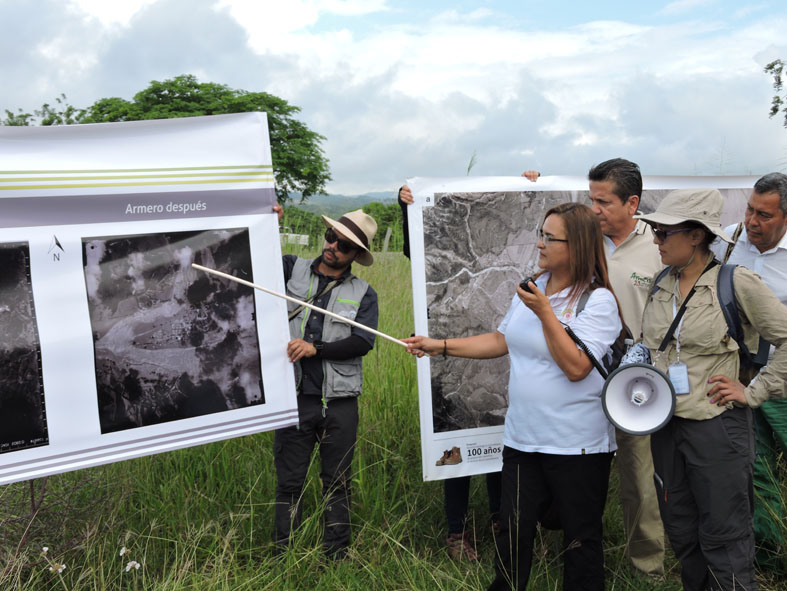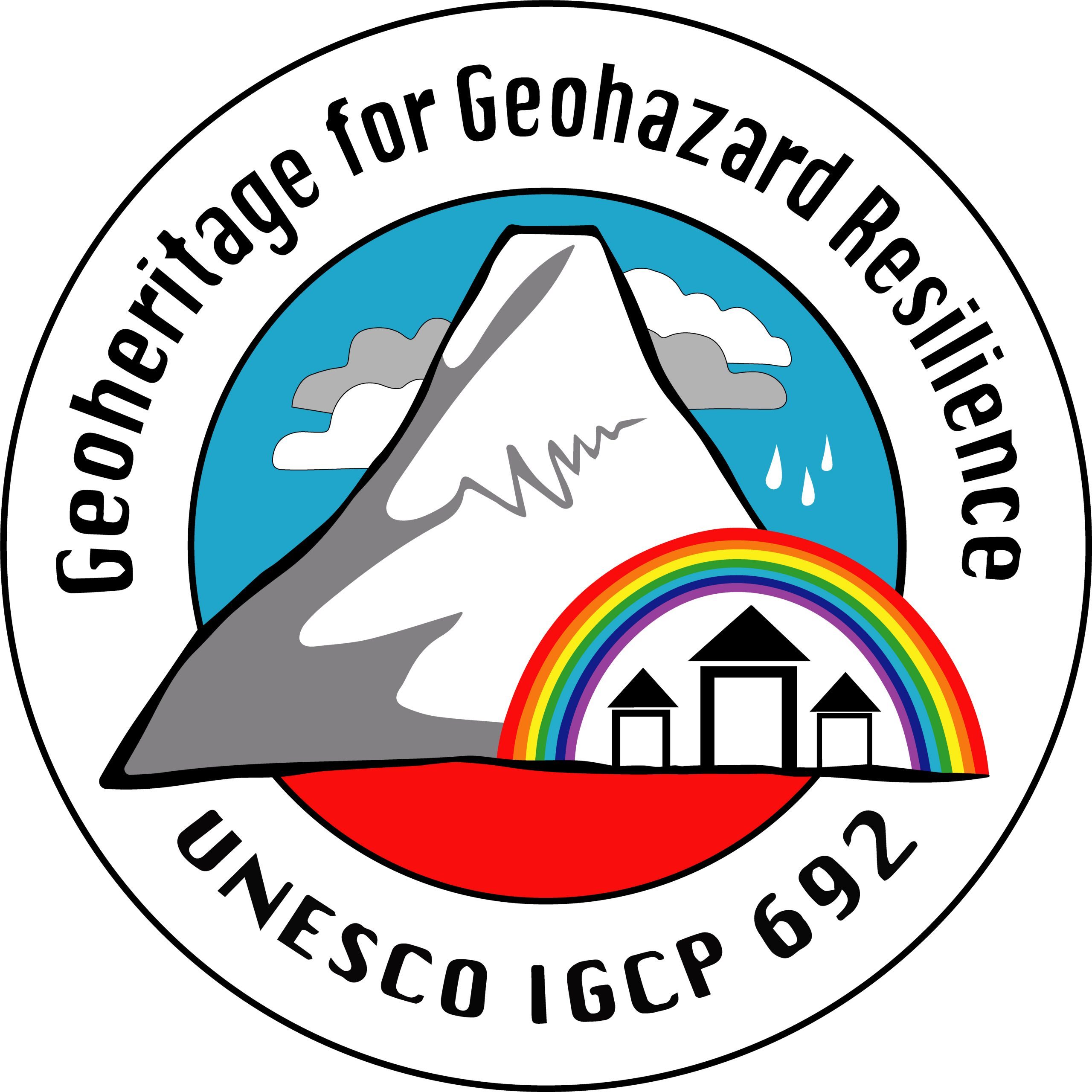IGCP 692:
GEOHERITAGE FOR GEOHAZARD RESILIENCE
This project is for geoheritage and geohazards capacity building in developing counties using our experience of developing and managing geological sites that tell local environment stories, thus increasing knowledge and resilience, while protecting both Earth resources and local people.
It builds on more 30 years of experience of developing geological education sites, using a bottom up approach of community engagement with local government support.

About the Project
The objective is to empower areas with the capacity to communicate and manage geohazards, and to establish a global community for best practice in Geoheritage for Geohazard Resilience, especially, but not exclusively in UNESCO World Heritage sites, Global Geoparks and also other protected areas.
Introductory Video: Explains in a discussion with Latin American members the theme of community communication for dealing with natural hazards and geoheritage

UNESCO International Geosciences Programme
This programme promotes Geosciences project that have direct societal impact.

Brief Description
Geoheritage for Resilience is a UNESCO Geosciences Programme (IGCP) project, that began in April 2019. The aim is to federate geoheritage projects and dedicated geosites around the world that deal with Resilience to natural hazards.
The project operates by on-line networking, videoconferences as well as dedicated workshops in geosite areas.
What is Geoheritage?
Geoheritage starts with humans, as it is they who view and appreciate their Earth heritage. No humans = no heritage.
Geohazards are natrual events that occur on the Earth, such a earthquakes, tsunami, volcanic eruptions, storms.
When Geohazards impact humans, they may be vulnerable and this vulnerability makes Risk.


What is Resilience?
The more Resilient you are, the less vulnerable, and so any geohazard has less negative effect on you.
Natural events that make hazards can also bring benefits, such as much needed water, good soils, mineral resources. They form the basic needs for the biosphere, and create our healthy environment. These benefits add resilience.

Geomojis
Lorem ipsum dolor sit amet, consectetur adipiscing elit. Ut elit tellus, luctus nec ullamcorper mattis, pulvinar dapibus leo.

Knowing Planet Earth
Lorem ipsum dolor sit amet, consectetur adipiscing elit. Ut elit tellus, luctus nec ullamcorper mattis, pulvinar dapibus leo.

Volcanscène
Lorem ipsum dolor sit amet, consectetur adipiscing elit. Ut elit tellus, luctus nec ullamcorper mattis, pulvinar dapibus leo.

Geopedregal
Lorem ipsum dolor sit amet, consectetur adipiscing elit. Ut elit tellus, luctus nec ullamcorper mattis, pulvinar dapibus leo.

UP Resilience Webinars
Lorem ipsum dolor sit amet, consectetur adipiscing elit. Ut elit tellus, luctus nec ullamcorper mattis, pulvinar dapibus leo.
Cities on Volcanoes 12
UNESCO International Geosciences Projects 692 ‘Geoheritage for Resilience’ and partners are initiating a discussion on “Fair Science, equitable and inclusive communities” as a commemorative session for Martha Navarro Collado at the Cities on Volcanoes Conference in Antigua, Guatemala (11-17 February, 2024).
Preparatory discussion will be held online, starting on the 28th of November.

International Journal of Geoheritage and Parks
The International Journal of Geoheritage and Parks is a referenced multidisciplinary international journal focused on the management, assessment, policies, education, tourism, interpretation, economics, museology, protection, nature resilience, forest therapy, and sustainable development of global geoheritage and parks. This journal seeks to promote divergent and pluralistic visions, ideas, and opinions regarding geoheritage and parks.



